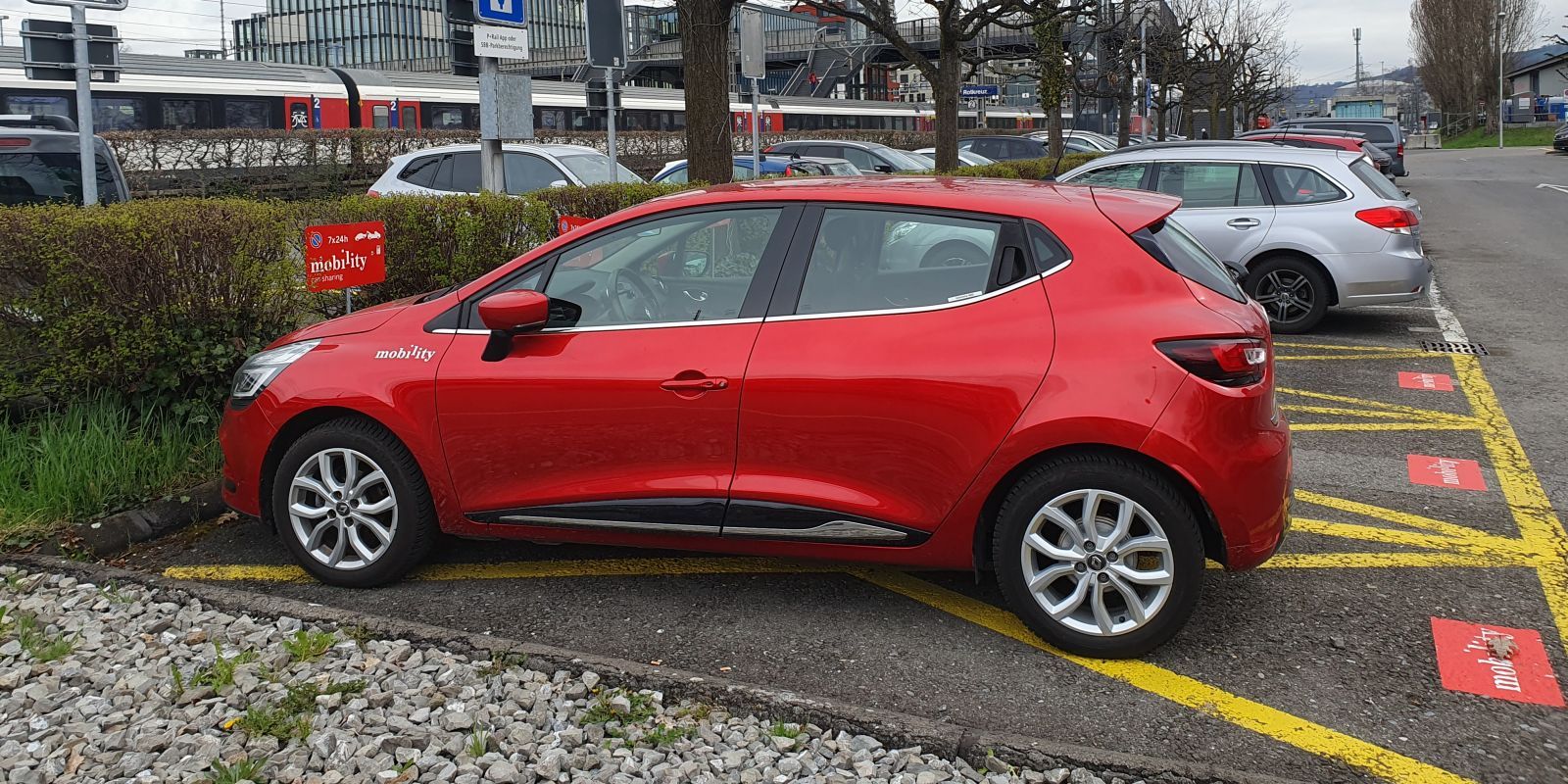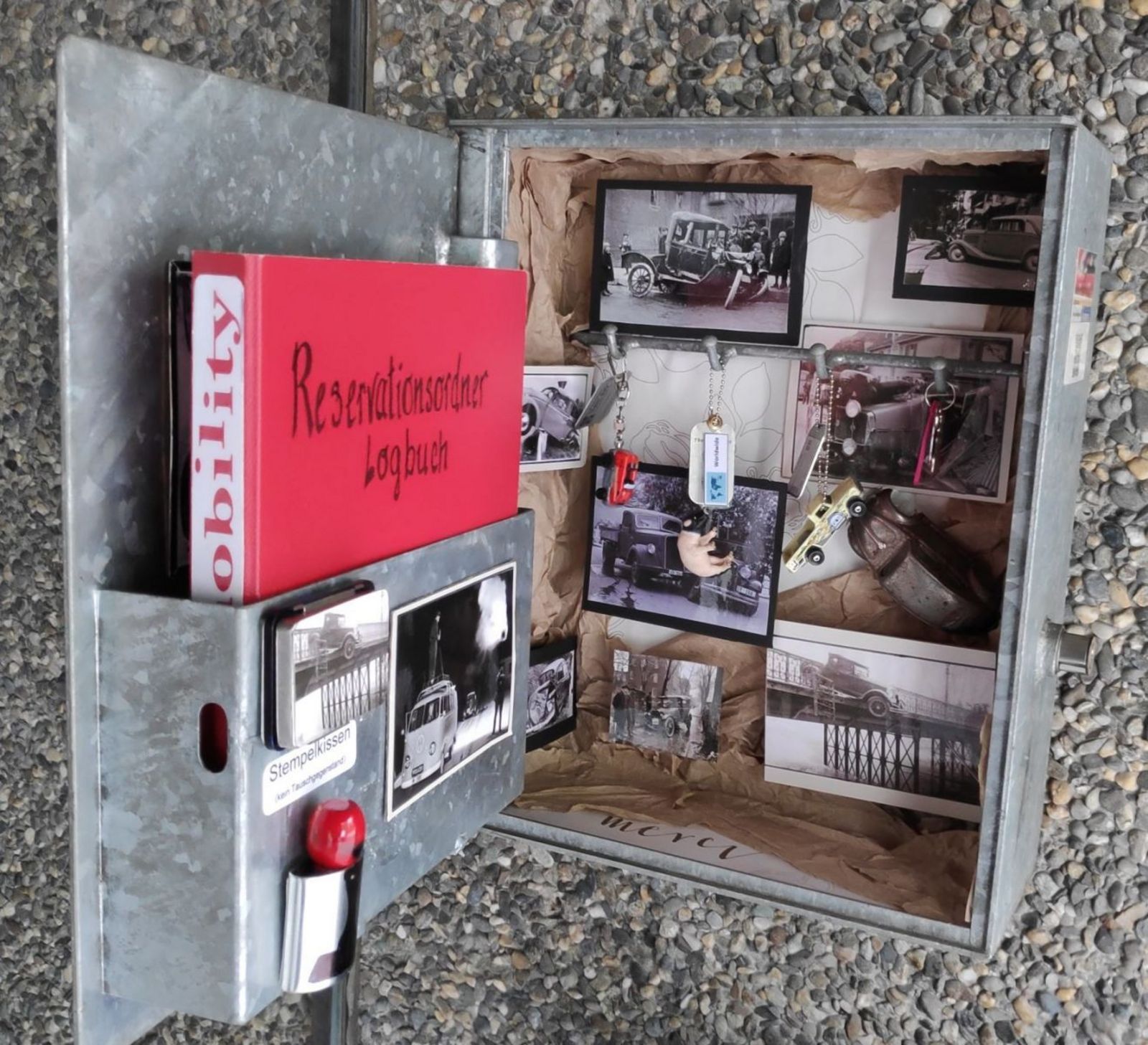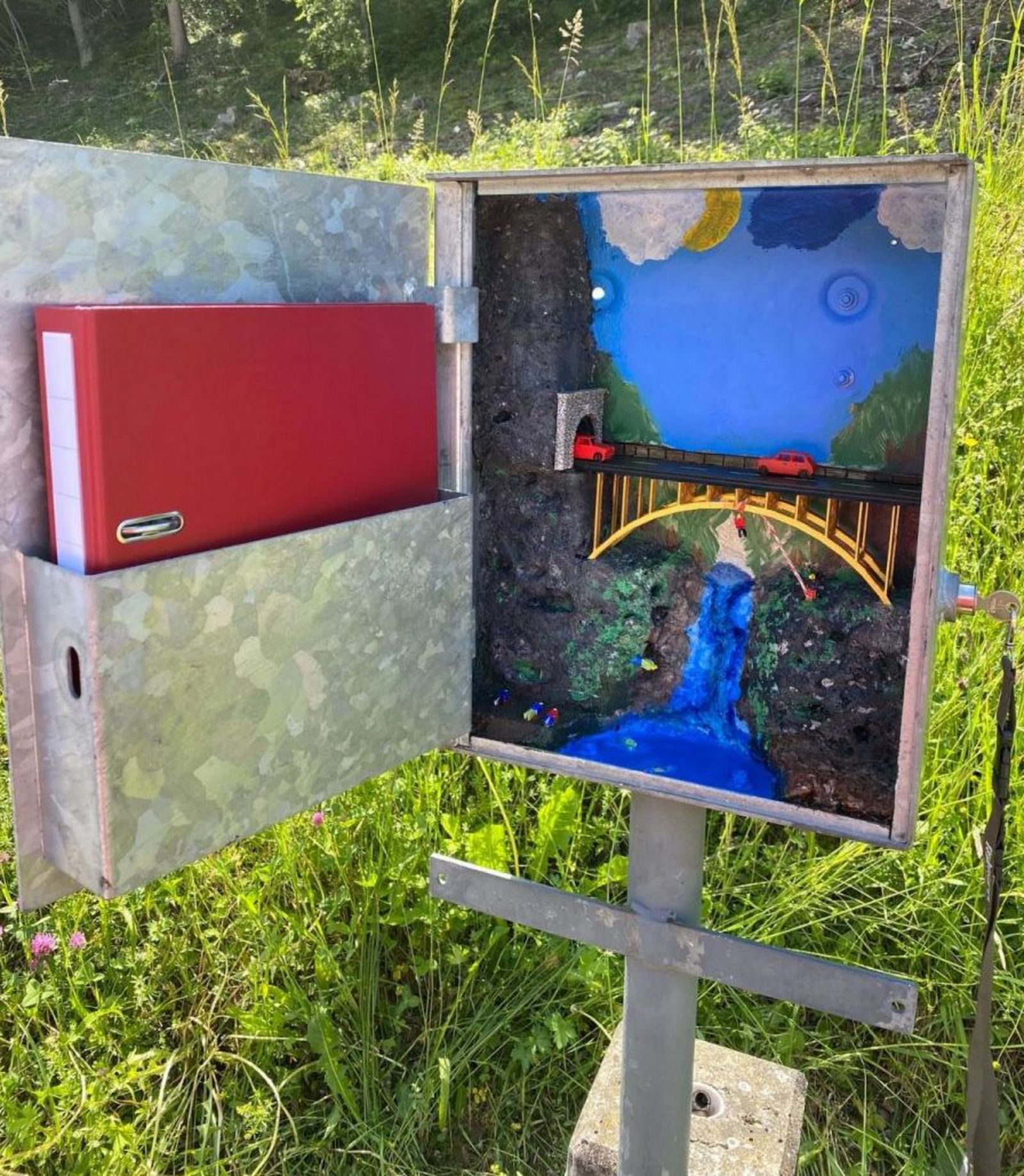They’re not visible at first glance. And yet they can be found all over the world, including Switzerland: treasures that can be as small as a thimble or as big as a barrel. Latter-day treasure hunters call them geocaches. They themselves are known as geocachers.
Geocaching is a pastime involving hiding a container somewhere interesting. The person hiding it enters the hiding place (the geocache) online on a map with the GPS coordinates and other background information. This lets other geocachers know roughly where to look and what to look for. The aim is to make the geocaches hard to find. Sometimes a riddle has to be solved in order to find them. The geocaches can contain items that can be traded. They’re also often hidden in places that can’t be reached by public transport. Luckily, there’s Mobility!

Treasure hunting instead of a walk
Someone who’s been playing this unusual adventure game for 15 years is Andreas S. Because geocachers prefer to conduct their treasure hunts secretly under a pseudonym, he only gives his first name. It all started with a walk. “I wanted to be out in the fresh air with the kids but spare them a boring Sunday walk around Lake Pfäffikon,” Andreas recalls. He’d read about geocaching in a newspaper and was immediately intrigued. “The aura of secrecy that surrounds it has really captivated the family,” says Andreas.
Andreas doesn’t just hunt for geocaches, he creates and hides them as well. When he was looking for a new hiding place for a geocache a few years ago, he and two fellow geocachers came across an orphaned Mobility key box. “These sturdy boxes were used in Mobility’s early days for keeping the car key and reservation folder, as well as the log book where you entered your journey,” Andreas explains. You were then billed on the basis of this list. Andreas was also one of the first to join the Mobility cooperative: “Lots of people around me doubted the car sharing model at the time – but for us it was perfect.” Mobility’s vehicles were gradually upgraded with an on-board computer from 2000 onwards, so the key boxes became surplus to requirements as users could open the cars with a smart card. It was then that one of Andreas’s colleagues asked Mobility if he could convert a key box into a geocache. “Getting the green light a little later was a real highlight for us,” Andreas recalls. “Until then, we’d preferred to hide our containers between tree roots in the forest,” he says. “Now we could place a big box containing a log book in the middle of the urban environment – and it was safe from vandals because of the locking mechanism.”

No advertising – yet distinctive
It’s no longer easy to see that the boxes belonged to Mobility. Because geocaching doesn’t allow advertising, Mobility’s trademark name was removed from the boxes. “But the red colour together with the vehicles forge an unmistakable link to the car sharing enterprise,” says Andreas. Now more than 50 of the former key boxes are in use as geocaches throughout Switzerland. “Some are beautifully decorated,” says Andreas. The keen geocacher is happy if many more people join them.

The geocaching code of honour
There’s a geocaching code of honour that every geocacher should abide by. The main points are as follows:
- When you find a geocache, enter yourself in the logbook.
- If you remove a tradable item from the container, replace it with one of at least equal value.
- Close the container well and put it back exactly where you found it. Camouflage it as the owner of the geocache intended.
- Respect nature and private property. For example, geocaches may not be hidden in nature reserves or on private land (without the owner’s consent).
- Keep a low profile so “geo-muggles” (people who don’t know what geocaching is) don’t find the hiding place. You’re no longer one of them!
- Cache In – Trash Out” (CITO): Pick up any rubbish you find while geocaching and dispose of it responsibly. In other words, leave nature cleaner as a result of your visit – thank you!
Further information: www.geocaching.com

Your comment